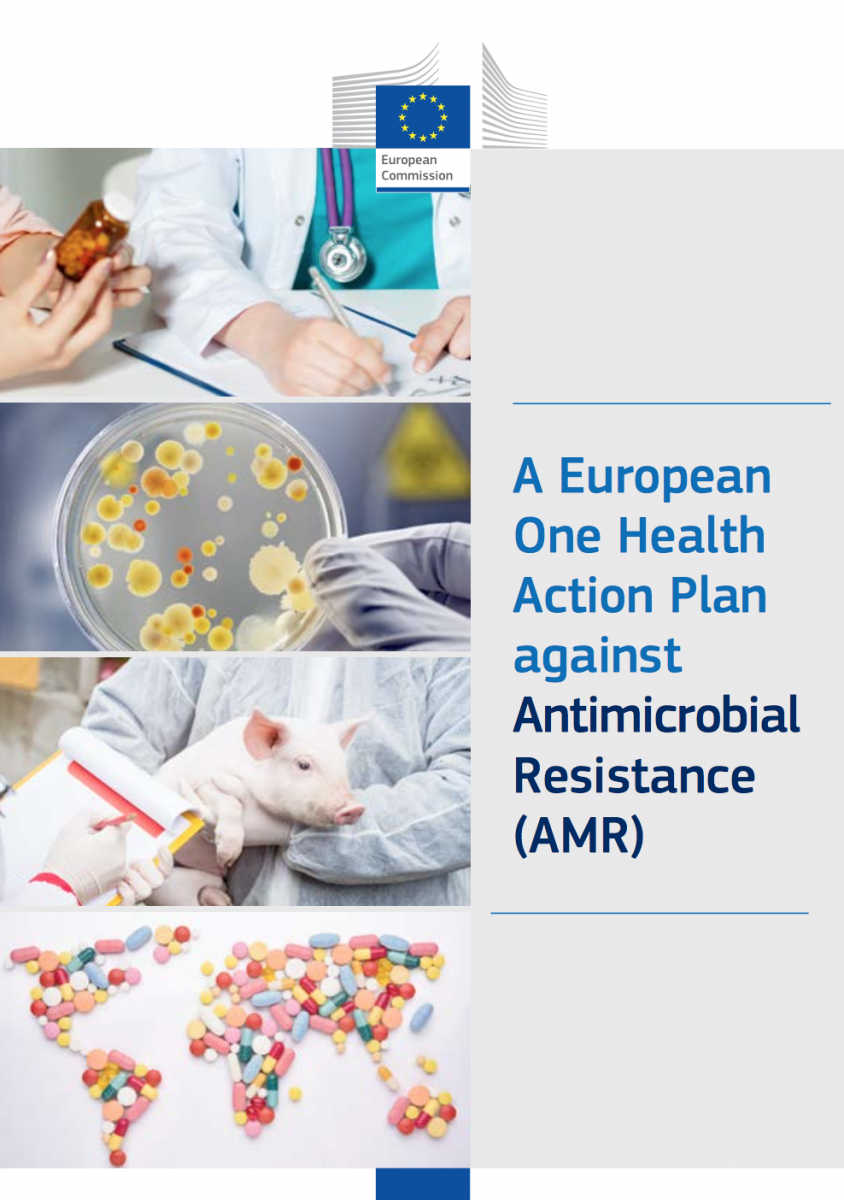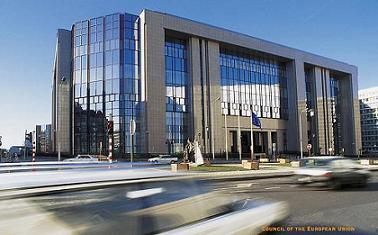 The EAHP EU Monitor is a regular round up of news relevant to hospital pharmacy in Europe.
The EAHP EU Monitor is a regular round up of news relevant to hospital pharmacy in Europe.
You can subscribe to receive the EAHP EU Monitor by email HERE.

EAHP joins EMVO as affiliate member
EAHP has become an affiliate member of the European Medicines Verification Organisation (EMVO), the body that oversees the implementation of the European Medicines Verification System (EMVS) for medicines verification across Europe.
In 2011, Falsified Medicines Directive introduced rules to improve the protection of public health with new harmonised, pan-European measures to ensure that medicines are safe and that the trade in medicines is rigorously controlled. To achieve this the Directive sets out obligatory safety features on the outer packaging of medicines. Detailed rules on these features are regulated by a delegated act which lays down the characteristics of the safety features, how medicine authenticity should be verified and by whom. Medicines verification in accordance with this delegated act will enter into force on 9th February 2018.
EMVO, which is founded by 5 pan-European medicines supply chain organisations – EAEPC (The European Association of Euro-Pharmaceutical Companies), EFPIA (The European Federation of Pharmaceutical Industries and Associations), GIRP (The European Healthcare Distribution Association), Medicines for Europe (The European Generic and Biosimilar Medicines Association), and PGEU (The Pharmaceutical Group of the European Union) – will be responsible for the implementation of the EMVS.
The medicines verification system prevents falsified medicines from entering the legal supply chain and thus tries to improve patient safety. In accordance with the Falsified Medicines Directive and the delegated act, manufacturers will be required to print a Data Matrix code, which incorporates a unique identifier and apply an anti-tampering device on the outer packaging of all medicines for each individual sales package. Information on the unique identifiers will be uploaded by manufacturers via the European Hub – which is operated by EMVO – while verification of medicines will take place in the National Medicines Verification Systems of the country in which the package is supplied.
Each package falling within the scope of the Falsified Medicines Directive will be will be scanned, checked and verified for authenticity against a national (or supranational) repository upon its dispense. If the unique identifier on the package matches the information in the repository, the package can be decommissioned and supplied to the patient. Packages whose unique identifier does not match the information in the repository will trigger an alarm in the system resulting in them not being e supplied to the patient. An investigation will be carried out which needs to determine whether the package has been falsified or not.
EAHP is represented within EMVO, as affiliate member. Together with the European Hospital and Healthcare Federation (HOPE), EAHP forms the hospital constituency of EMVO.
More information on EMVO HERE
More information about the Falsified Medicines Directive HERE

Commission releases new measures on AMR
Today, the European Commission published its new One Health Action Plan which provides a framework for future actions against antimicrobial resistance (AMR). AMR – the ability of microorganisms to become resistant to an antimicrobial to which they were previously susceptible, rendering the therapy ineffective – has reached alarming levels in many parts of the world. Consequently, the European Commission started taking actions illustrated in the 2001 Communication strategy against AMR and the 2011 Commission Action Plan. The latter ceased to apply at the end of 2016 and will now be replaced by the One Health Action Plan.
The previous action plan, which was evaluated in 2016 acted as a symbol of political commitment, stimulated actions within Member States, strengthened international cooperation and provided a framework to guide and coordinate activities at international level, including monitoring, surveillance as well as research and development. These actions were relevant to address problems identified by the previous action plan in 2011 and still remain relevant today. Consequently, the new Action Plan is built on 3 main pillars
- Making the EU a “best practice region”;
- Boosting research, development and innovation on AMR;
- Shaping the global agenda.
The One Health approach taken in the new action plan does not only recognise that human and animal health are interconnected but also encompasses the environment.
Each pillar of the One Health Action Plan contains concrete measures that will be undertaken by the European Commission to continue the fight against AMR. By supporting and assisting Member States in the development of national action plans, strengthening the surveillance and monitoring of AMR and increasing public awareness on AMR, the EU should be made a best practice region. Research and innovation will be stimulated by the European Commission through new business models and incentives for sustainable investment. In addition, the one Health Action Plan contains plans for the stimulation of research on new antimicrobial drugs, rapid-diagnostic tests, vaccines and alternatives.
As part of the last pillar, the global presence of the EU should further be heightened by active contributions towards the normative work of the World Health Organisation (WHO), the World Organisation for Animal Health (OIE) and the Food and Agriculture Organisation of the United Nations (FAO). Moreover, resources will be invested in the cooperation with developing countries.
Most actions outlined in the new One Health Action Plan can be addressed by adapting and reinforcing existing actions. In addition, the European Commission plans to closely monitor the effectiveness and performance of the key actions taken in accordance with the One Health approach.
The European Commission expressed its confidence in the new Action Plan, as it can make a difference by sharing the EU experience, strategically reinforcing its research agenda and promoting global action. The European Parliament and the Council are invited to endorse this Action Plan. Member States and other actors involved are called on to help ensuring that the efforts to counter AMR outlined in the Action Plan are swiftly implemented.
One Health Action Plan available HERE
More information HERE

EU Council Presidency: thank you Malta – hello Estonia
Tomorrow, the EU Council Presidency of Malta will come to an end and Estonia will assume the Council’s rotating presidency. The presidency is responsible for driving forward the Council’s work on EU legislation, ensuring the continuity of the EU agenda, orderly legislative processes and cooperation among member states. It rotates among the EU Member States every 6 months.
To ensure continuity, Member States holding the presidency work together closely in groups of three, called ‘trios’. These trios set long-term goals and a common agenda which stretches over a period of 18 month. A more detailed 6-month programme is prepared by each of the three countries based on the general programme set by the trio. Estonia will from a trio with Bulgaria and Austria. The three countries are planning on “taking forward the Strategic Agenda“.
The four priorities that will be tackled by Estonia centre around an open and innovative European economy, a safe and secure Europe, a digital Europe and the free movement of data as well as an inclusive and sustainable Europe. They fall within Estonia’s presidency theme “unity through balance”. The image on the one hand reflects the need of Europe for unity – in values, ideas and actions. On the other hand it suggests that a balance must be found between the various opinions, interests and visions of all Member States.
The work programme of the incoming presidency that contains information on each of the four priorities focuses largely on driving digital developments forward, in particular those relating to the Digital Single Market. The work programme does however not contain any details on measures relating the health sector. Nonetheless, due to the links between the Digital Single Market and eHealth a high level conference on health in the digital society and the digital society for health will be organised in October 2017.
The conference will bring together the EU policymakers and Member State ministers responsible for health, patient organization representatives, national and international IT and healthcare companies, health professionals, healthcare managers, and the research and development sector. Decision makers and stakeholders will be provided with the opportunity to learn about most recent policy and technological developments and to be part of the discussions to shape the roadmap of actions under Digital Single Market strategy in order to achieve full benefits of digital health at the individual and societal level.
The trio programme of Estonia, Bulgaria and Austria HERE
More information on Estonia’s presidency HERE
 Conference – Safer Europe without falsified medicines
Conference – Safer Europe without falsified medicines
During the period of Estonia’s presidency, the Estonian State Agency of Medicines and the Association of Pharmaceutical Manufacturers in Estonia are hosting together with the Ministry of Social Affairs an international conference on falsified medicines.
The Safer Europe without falsified medicines conference will take place from 8-9 November in Tallinn at Kultuurikatel. The main focus of the Conference will be the implementation of safety features appearing on the packaging of medicinal products for human use in the European Union that come into effect February 2019 (Commission Delegated Regulation (EU) 2016/161). The practical aspects of the preparations made by governments and stakeholders, also including the legal and IT aspects and challenges that need to be solved in Member States, will be discussed.
In the Conference the following topics will be covered:
- Overview of the situation concerning falsified medicines in the European Union and worldwide, and the requirements in the EU;
- The stakeholders’ model for the implementation of safety features – European and national repositories, verification organisations, readiness of involved users;
- The main challenges facing the implementation of safety features for Member States and how to get the most value from the new system: future developments, additional applications, co-operation of the Member States;
- How the implementation of safety features will influence the availability of medicines. Participation in the Conference will be free of charge for all the stakeholders.
More information on the Conference and online registration HERE

EJHP: Anaemia predictors in patients with chronic hepatitis C
The online first edition of the European Journal of Hospital Pharmacy (EJHP) has published an original article on anaemia predictors in patients with chronic hepatitis C treated with ribavirin and direct-acting antiviral agents. The findings of the article suggest that anaemia is less significant in this cohort compared with studies on RBV plus pegylated interferon, telaprevir or boceprevir combinations, but higher than those on newer DAAs.
More HERE
————————————————————–

Consultations
EMA – Concept paper on a guideline on the evaluation of medicinal products indicated for treatment of influenza
EMA consults on a concept paper proposing the development of a guideline on the clinical evaluation of medicinal products indicated for the treatment of influenza for which there is no regulatory guidance currently available within the EU.
Deadline – 31st July 2017
More information HERE
EMA – Concept paper on the revision of the guideline on the role of pharmacokinetics in the development of medicinal products in the paediatric population
The guideline was issued in 2007. Over the last 10 years, the EMA Paediatric Committee has approved a large number of Paediatric Investigational Plans and an increasing number of applications for paediatric indications have been submitted to EMA and the national regulatory agencies. A revision to the guideline is therefore proposed to reflect the experience gained over the last decade and developments in science.
Deadline – 31st July 2017
More information HERE
EMA – concept paper on the need for the development of a reflection paper on regulatory requirements for the development of medicinal products for chronic non-infectious liver diseases (PBC, PSC, NASH)
Based on the need for further guidance, EMA would like to work on a reflection paper outlining requirements for the development of medicinal products for chronic non-infectious liver diseases. The consultation aims at determining the scope of this paper.
Deadline – 31st August
More information HERE
EMA – Clinical Data Publication Survey
The survey aims at collecting the views of the users of the clinical data website and gathering feedback on the usability of the website. The survey should take no more than 10 minutes to complete.
Deadline – 31st August
The survey is available HERE
European Commission – Stakeholder consultation for the evaluation of EU legislation on blood, tissues and cells
The purpose of this consultation is to support a comprehensive evaluation of the Union legislation on blood and tissues and cells – Directives 2002/98/EC and 2004/23/EC respectively and their implementing (technical) Directives, examining their functioning across the EU. In particular, the consultation aims to gather views on the extent to which the Directives have met their original objectives and whether they remain fit for purpose. The evaluation is expected to provide a sound evidence base which will be used to consider the need for any changes to the legislation.
Deadline – 31st August
More information HERE

Upcoming events
7th September – EPHA 8th Annual Conference: Make Health Your Business
Brussels, Belgium
Despite the existence of a strong evidence base for effective policy action on health promotion and disease prevention too little has been achieved. Policy-makers already know what needs to be done to overcome barriers to good health so the focus of this conference will be to explore how new levers and different levels of power can break through to real action on chronic diseases – by making health everyone’s business.























 The EAHP EU Monitor is a regular round up of news relevant to hospital pharmacy in Europe.
The EAHP EU Monitor is a regular round up of news relevant to hospital pharmacy in Europe.


 Conference – Safer Europe without falsified medicines
Conference – Safer Europe without falsified medicines


